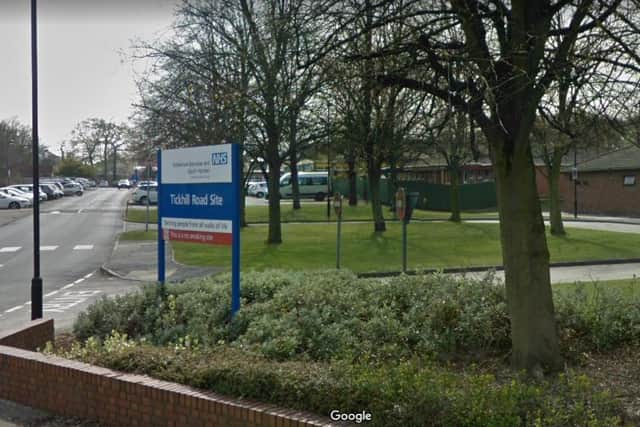Health workers including a bogus psychiatrist thought Doncaster woman dying of cancer was just mentally ill – and treated family’s concerns as an annoyance
and live on Freeview channel 276
Concerns about the patient, who had a learning disability, are raised in a report commissioned by the Rotherham Doncaster and South Humber NHS Foundation Trust with the co-operation and agreement of Doncaster and Bassetlaw Teaching Hospitals, Doncaster NHS Clinical Commissioning Group and Doncaster Council.
Niche Health and Social Care carried out the investigation into the care and treatment of the patient, referred to as ‘Annette’, between 2009 and 2014.
Advertisement
Hide AdAdvertisement
Hide Ad‘Bubbly’ Annette moved into a supported tenancy in 2005 aged 47 after her parents died, supported by her brother and sister-in-law, and a support worker, enjoying some independence.


She died aged 56 after developing an undiagnosed gynaecological cancer which spread.
Annette’s family had a history of female cancer deaths in their mid-50s, leading to concerns from her brother, who asked questions when she expressed pain or became sick.
In 2009, Annette became ‘vague, withdrawn, thirsty and, at times, incontinent’, losing weight. Tests found no abnormalities, but she continued to suffer abdominal pain.
Advertisement
Hide AdAdvertisement
Hide AdOver the next four years she was put in various care settings and went from relatively happy and independent to sedated and restrained, with people who did not know her making decisions about her, said the report.
Her family, knowing her independent history, tried to intervene.
The report states: “Instead of working with her family, services often saw their interventions as an ‘annoyance’ and at times adopted either avoidant or aggressive stances towards them. This became adversarial where Annette’s brother and sister-in-law resorted to making complaints, up until her death in 2014 in order to try and get any answers.”
The report stated diagnostic delays resulted in her losing her independence and suffering poor end-of-life care. Diagnostic overshadowing – assuming her behaviour was part of her disability without exploring other factors – meant health teams thought she had catatonic schizophrenia so gave the wrong drugs and care.
Advertisement
Hide AdAdvertisement
Hide AdShe was sent to ‘unsuitable and medicalised environments’ for months at a time and at times restrained in contravention of the Mental Capacity Act, and assaulted by violent patients.
It added: “Her family were not adequately consulted at numerous points in her care and, when they raised concerns, in pursuit of good quality care, were eventually side-lined;
“Her family were not informed of the deterioration in her physical health. Staff put her vomiting down to behavioural and mental health issues which delayed access to the right medical care.
“Annette was viewed as having a mental health problem as a result of her resistance to care.
Advertisement
Hide AdAdvertisement
Hide Ad“Annette was one of a number of patients seen by a person acting as a qualified doctor/psychiatrist but now known to be working under a false registration.
“Annette’s learning disability was not adequately taken into account in her diagnosis and management and she was instead diagnosed with a severe mental illness – catatonic schizophrenia."
David Crichton, chairman of Doncaster CCG, said: “While this is a historical case and many aspects of treatment and care for people with a learning disability have improved in Doncaster, it is important that all areas are addressed.”